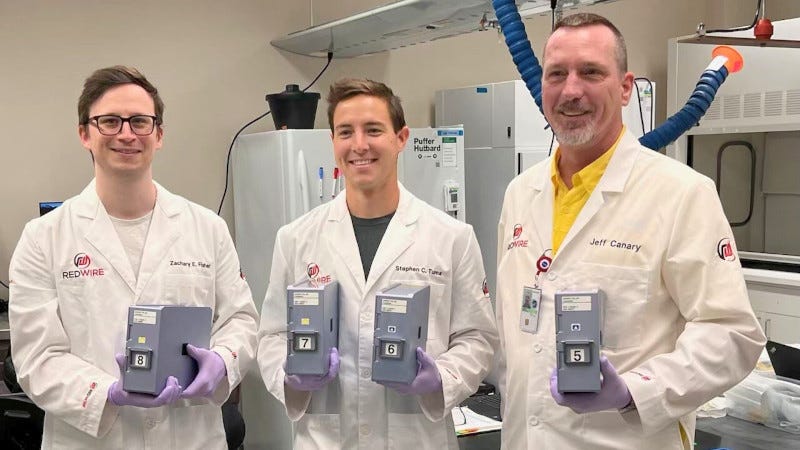New Set of PIL-BOX Experiments Headed to the ISS
Paves the Way for Improved Medicine on Earth
A fourth set of PIL-BOC experiments have been sent to ISS by Redwire as part of the NG-21 Commercial Resupply mission
Redwire’s in-space pharmaceutical manufacturing system, PIL-BOX, is opening the door to a new frontier for pharmaceutical drug research and improved human health on Earth. This latest investigation builds on previous investigations that l…




